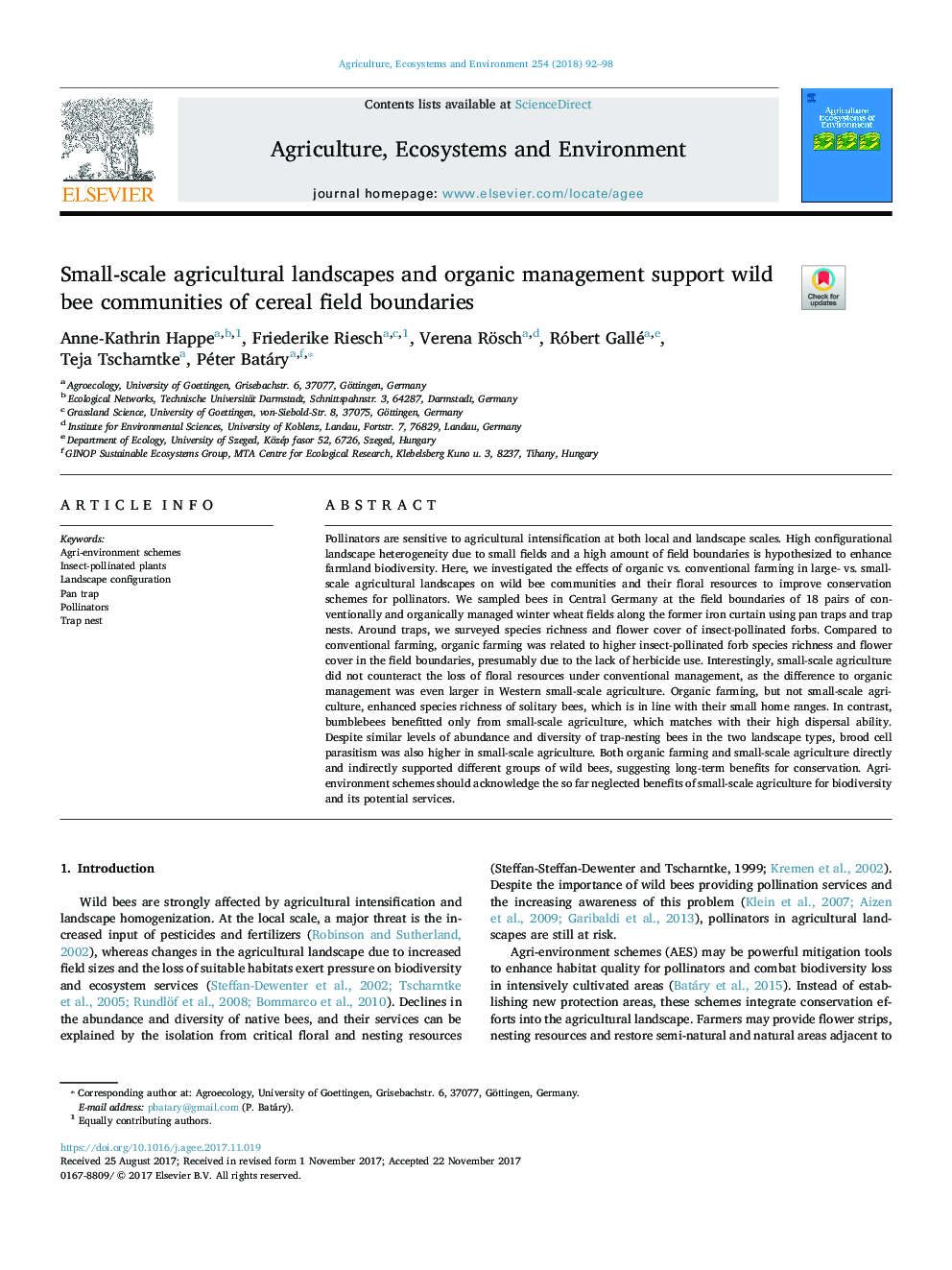| Article ID | Journal | Published Year | Pages | File Type |
|---|---|---|---|---|
| 8487205 | Agriculture, Ecosystems & Environment | 2018 | 7 Pages |
Abstract
Pollinators are sensitive to agricultural intensification at both local and landscape scales. High configurational landscape heterogeneity due to small fields and a high amount of field boundaries is hypothesized to enhance farmland biodiversity. Here, we investigated the effects of organic vs. conventional farming in large- vs. small-scale agricultural landscapes on wild bee communities and their floral resources to improve conservation schemes for pollinators. We sampled bees in Central Germany at the field boundaries of 18 pairs of conventionally and organically managed winter wheat fields along the former iron curtain using pan traps and trap nests. Around traps, we surveyed species richness and flower cover of insect-pollinated forbs. Compared to conventional farming, organic farming was related to higher insect-pollinated forb species richness and flower cover in the field boundaries, presumably due to the lack of herbicide use. Interestingly, small-scale agriculture did not counteract the loss of floral resources under conventional management, as the difference to organic management was even larger in Western small-scale agriculture. Organic farming, but not small-scale agriculture, enhanced species richness of solitary bees, which is in line with their small home ranges. In contrast, bumblebees benefitted only from small-scale agriculture, which matches with their high dispersal ability. Despite similar levels of abundance and diversity of trap-nesting bees in the two landscape types, brood cell parasitism was also higher in small-scale agriculture. Both organic farming and small-scale agriculture directly and indirectly supported different groups of wild bees, suggesting long-term benefits for conservation. Agri-environment schemes should acknowledge the so far neglected benefits of small-scale agriculture for biodiversity and its potential services.
Related Topics
Life Sciences
Agricultural and Biological Sciences
Agronomy and Crop Science
Authors
Anne-Kathrin Happe, Friederike Riesch, Verena Rösch, Róbert Gallé, Teja Tscharntke, Péter Batáry,
